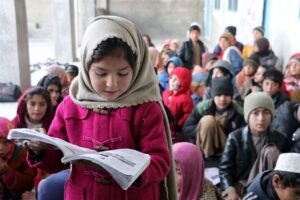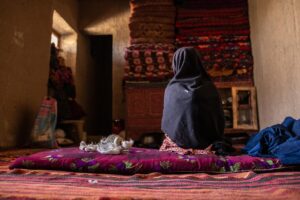KABUL (SW) – Migration has been a continuous process from the early stages of human societies to the present day, taking on various forms throughout history. This phenomenon has been a key driver of demographic changes and can lead to significant transformations in individuals and societies.
This report focuses on the role of migration in personal growth and enhancing individual abilities. The report features interviews with 10 young people who immigrated but now live in Kabul, including three women and seven men.
These young individuals express that despite the challenges of migration, it has provided them with opportunities to broaden their perspectives and gain greater self-confidence compared to their past selves.
They further explained that exposure to new cultural and social environments has resulted in personal transformations, allowing them to learn new skills.
Sanawbar Parsa, who lived as a migrant in Iran for two years, shares that being away from her family and encountering different cultures and people has significantly influenced her personality, giving her a new perspective on life. She says, “I have undergone a personal transformation; migration made me change many of my viewpoints and adopt a completely different perspective.”
Lifestyle is another area where migration brings change. Sanawbar mentions that before migrating, she enjoyed spending time with family and friends, but now she has become accustomed to living independently. “Before becoming a migrant, I lived with my family, and we would gather together. But migration taught me to live independently, and this has had a positive impact on my life.”
Emran, another young person who has experienced migration in Pakistan, India, and Iran, says that migration has motivated him to work harder for self-sufficiency and the progress of his country. “When I migrated and saw how much other countries had advanced in construction and development, I became inspired. It made me wonder why we don’t try to improve, and this greatly impacted my personality, pushing me to strive more.”
Emran adds that migration has taught him to better understand his needs and appreciate them, which has led him to take life more seriously and continue it more consciously. “When you become a migrant and face challenges, you assess your needs, and that’s when you can build your character and work on yourself and your needs.”
The interviewees in this report also highlight that learning new skills and gaining confidence are among the other benefits of migration. These young individuals believe that migration leads to the development of social, educational, and professional skills, which fosters independence and boosts self-confidence.
Bashir Forogh, who migrated for education, says, “I was able to benefit from the skills and teaching techniques of the host country, and there have been personality changes in me, such as interacting with and understanding new people.”
However, migration also presents many challenges, particularly in terms of interacting with the cultural and social environment of the host country or facing an identity crisis.
Shamsuddin Nabizada, who recently returned to Afghanistan, says, “Migration has both positive and negative impacts, but the negative ones are more significant. Being away from studies and disrupting the normal flow of life are some of its negative impacts. You have to live under the laws of another country.”
Sonia Mohammadi, who now lives in one of the European countries, says, “When we go to another country, we don’t have what we had in our home country, and we are forced to work hard to integrate with their society, which takes time.”
On the other hand, migrant rights activists argue that migrants face numerous cultural and personal challenges, and overcoming these challenges can lead to personal transformation.
Asifa Barekzai, a migrant rights activist, says, “When we enter a new environment where everything is different, we learn in a new way. These new differences lead to changes in our values and perspectives.”
Sociologists also say that migration creates opportunities for personal growth and resilience. Zakarya Barekzai, a sociologist, states that migration facilitates cultural interaction. “Today, we are experiencing cultural interactions where cultures influence each other, leading to changes in every society.”
The migration of Afghan citizens, particularly the youths, represents a significant portion of global migration trends. Regardless of the reasons behind it, these migrations can lead to shifts in young people’s beliefs about life and, ultimately, to significant personal transformations.






